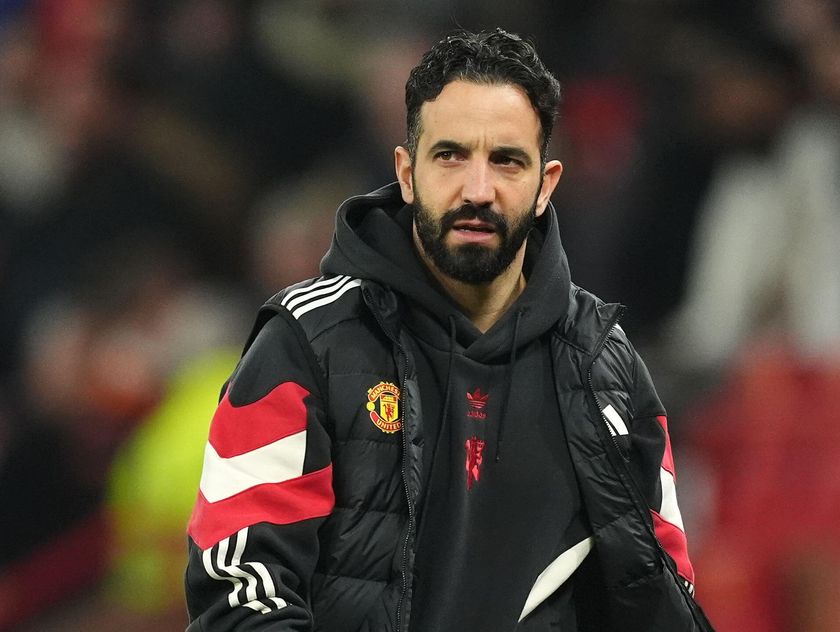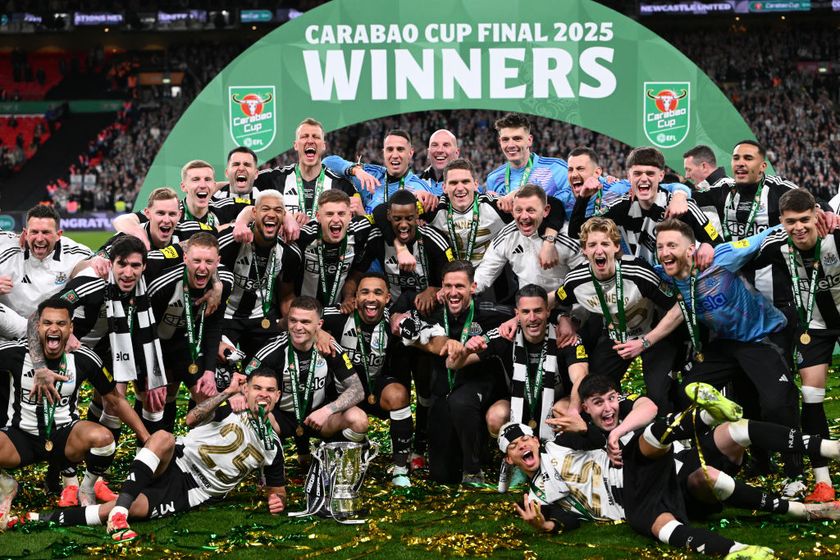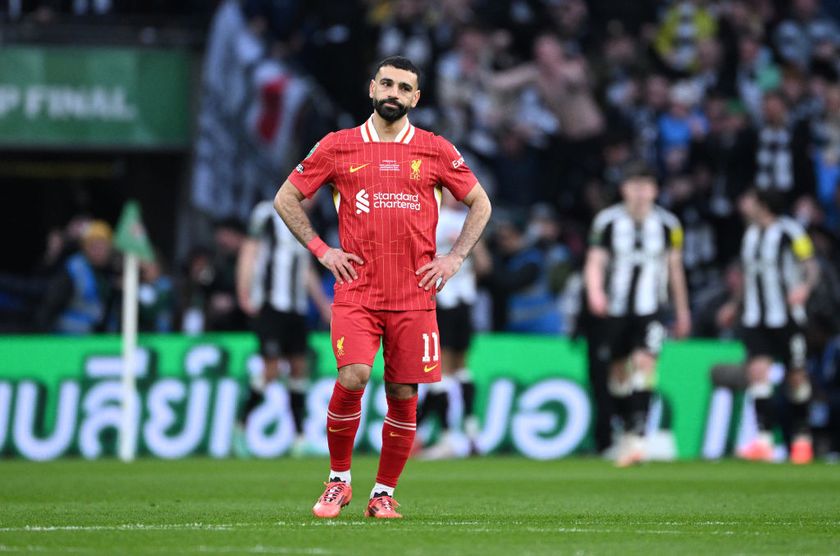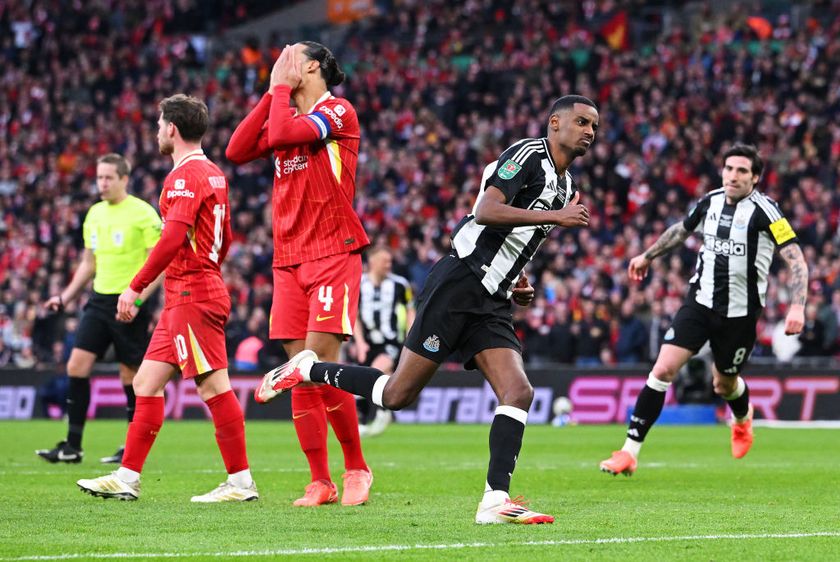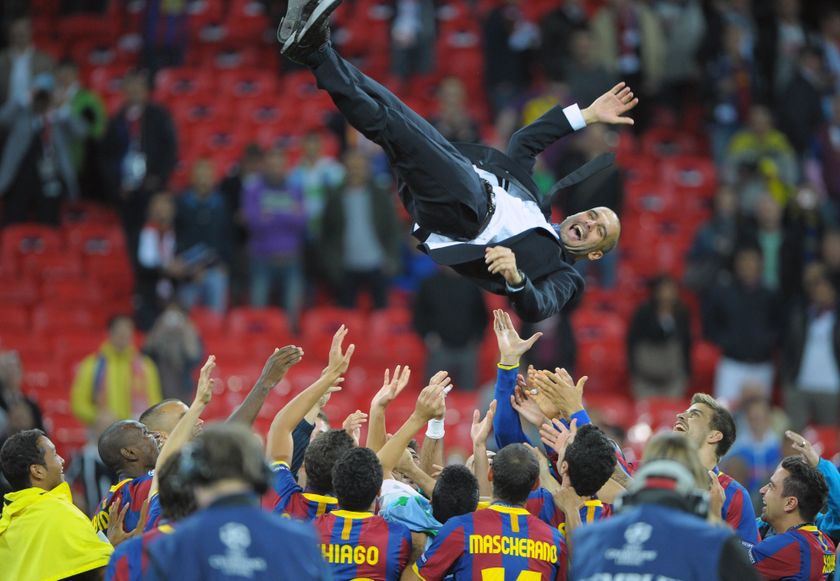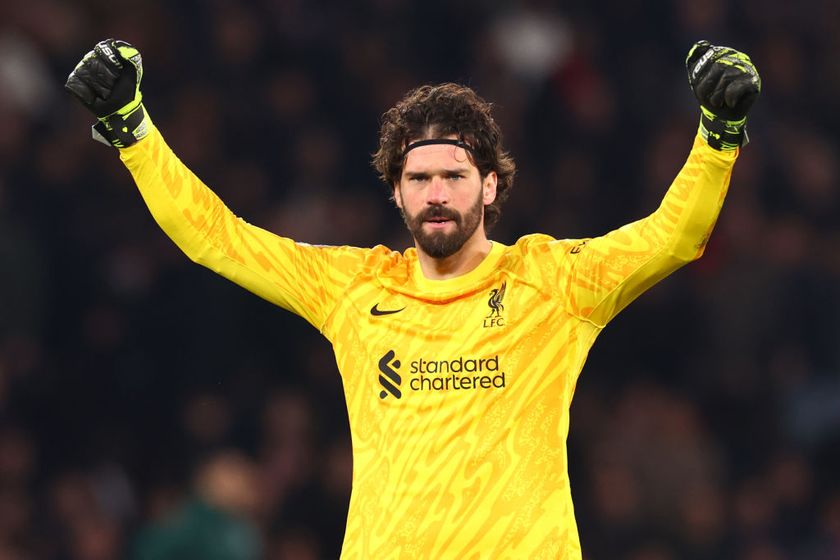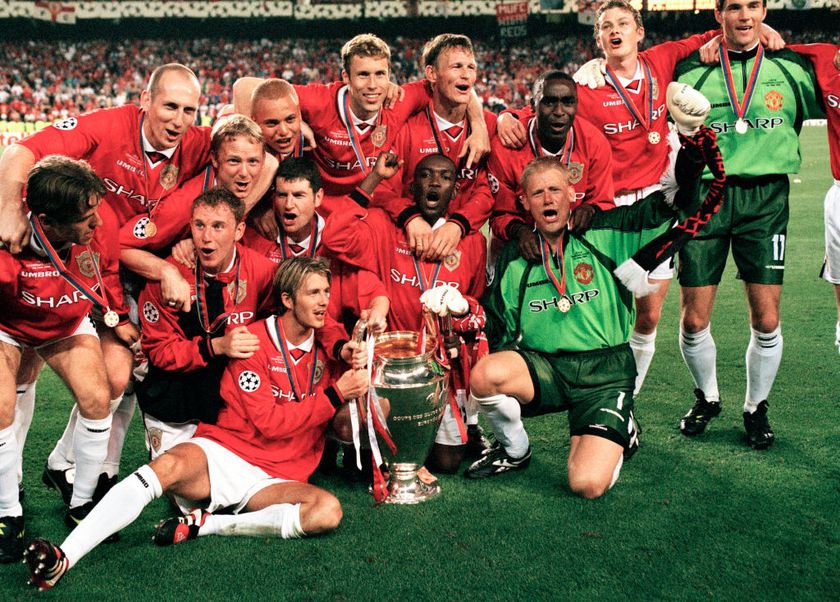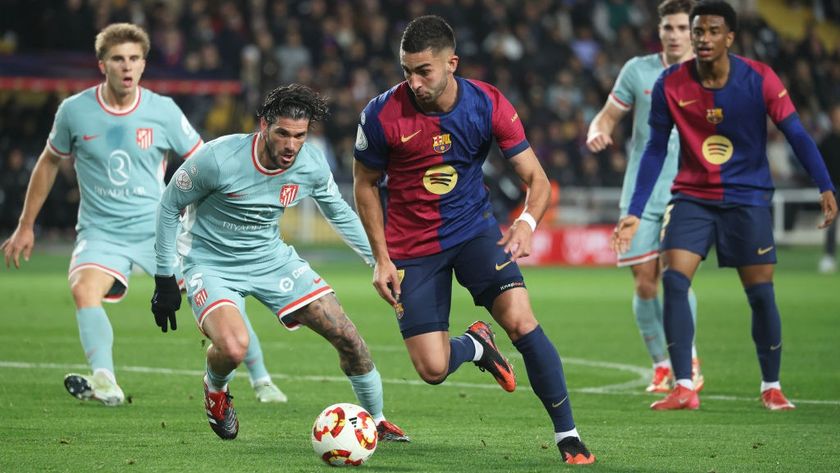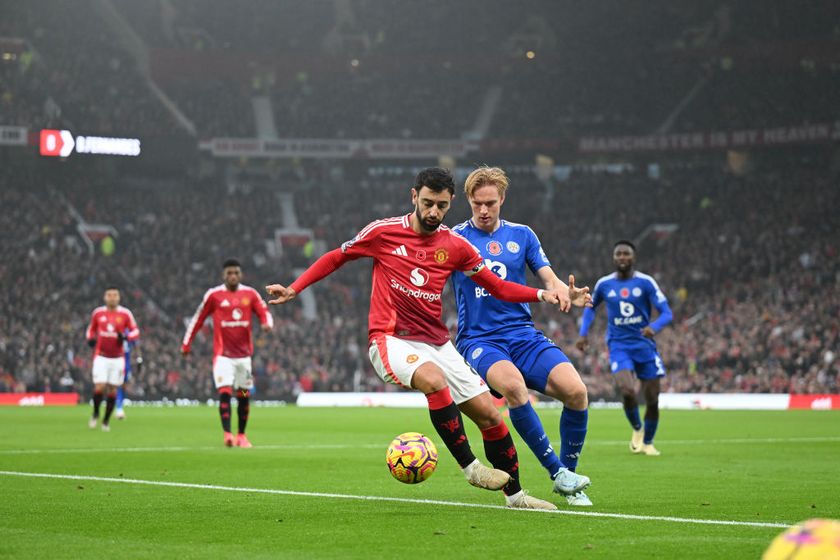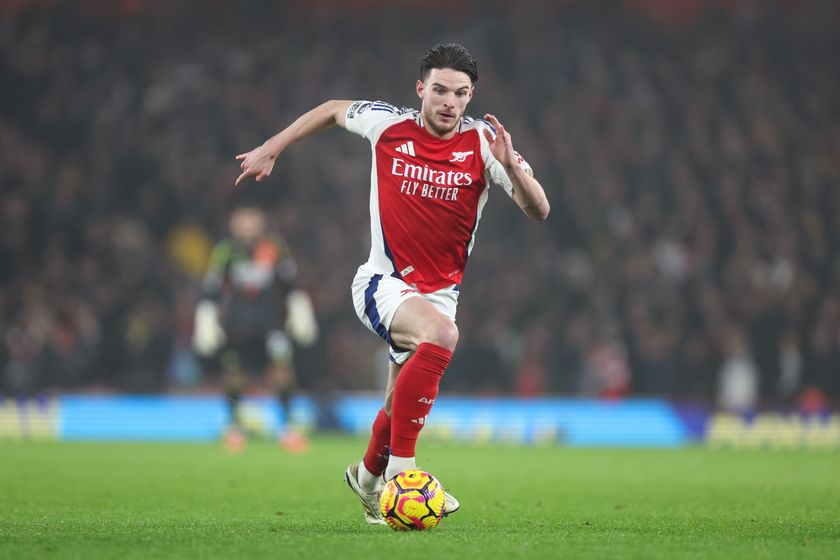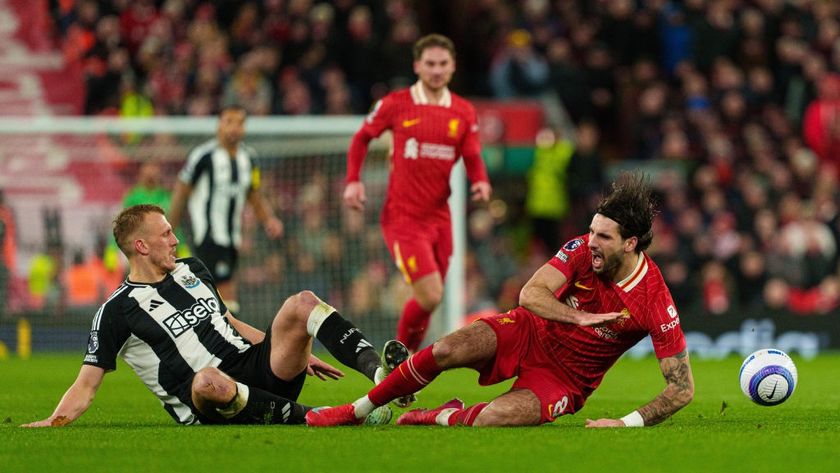The view from the press box – from the 1990s to now
From copy-takers and crumbling grounds to laptops and 21st century stadia
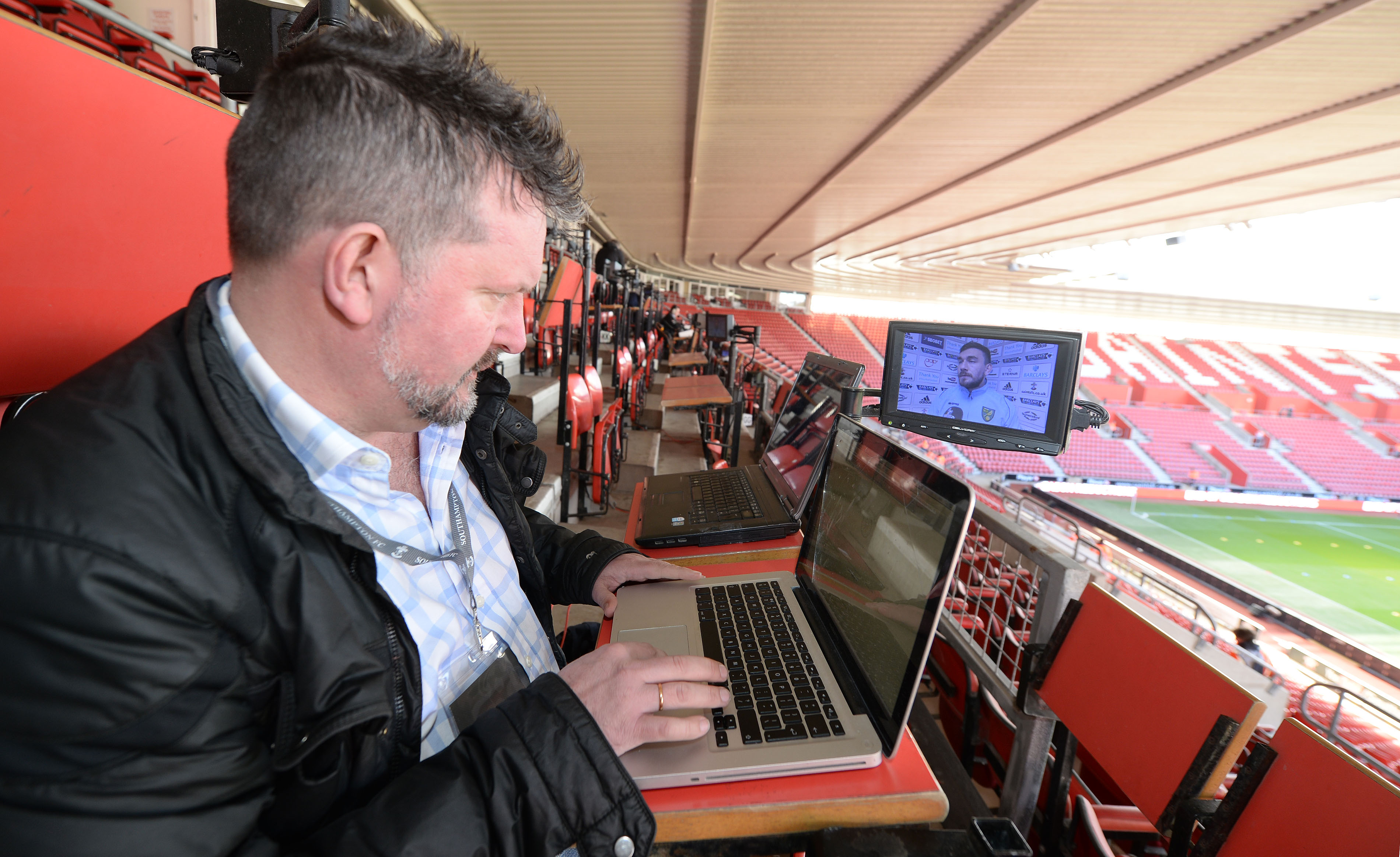
"…the ball coming off his shin and taking two deflections before beating the wrong-footed Ogrizovic – O-G-R-I-Z-O-V-I-C. Stop. New par. Fashanu might have made… Ogrizovic – O-G-R-I-Z-O-V-I-C… the Coventry City goalkeeper Steve Ogrizovic… O for orange, G for goal… no, not coal… I’ll call you back… I said, “I’LL CALL YOU BACK”.’
Jesus Christ. The blasphemy was not expressed audibly and not necessarily directed at the tired-sounding woman taking copy in an office somewhere in London. I may have only been in my mid-20s but I reasoned that this was almost certainly the onset of a cardiac arrest.
"It’s the Sunday Times sportsdesk on the phone," my father had said the previous morning. I’d finally been given a game. It wasn’t a complete shock as I’d been on the list for a few months and had already undertaken two dry runs, but this was the real deal and the nerves began immediately.
Shortly followed by the research – the Rothmans (now Sky) Football Yearbook: no internet back then, kids – I was sick before I set off. There was no margin for error. So imagine my delight as the M6 ground to a halt, I arrived at the ground with just 30 minutes to spare and there were no parking spaces. Well, there were parking spaces, just none for me.
Get FourFourTwo Newsletter
The best features, fun and footballing quizzes, straight to your inbox every week.
"You’ve no pass," I was told by an old man with a club tie and rictus grin. "The press pass will get you in the press box, but not this car park." "I’m with The Sunday Times," I said. "I couldn’t care if you’re with the The [sic] Gay Times mate, you’re not parking here."
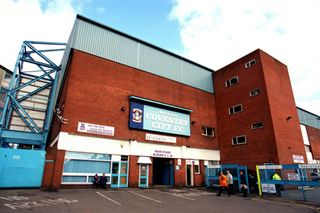
After briefly considering leaving the engine running and reporting the car stolen, a frantic few minutes ensued – a search for a parking space followed by a breakneck sprint to the ground. It was the first game of the 1994-95 season and I’d been assigned Coventry City vs Wimbledon. The crowd would turn out to be disappointingly poor (although Cov would kill for 10,962 now), but they had all decided to turn up at the same time as me.
Into the press box
The word count was 640, larger than might have been expected for a less-than-stellar fixture, but the almost brand-spanking new Premier League was getting serious attention in the mainstream press – although the same might not be said for Coventry-Wimbledon if this reporter couldn't get into the ground and grab himself a phone. The phones had dials and were looked after by a club type, probably unpaid but who would now be a Facilities Communicator on £20k per annum. He pointed to the press box where you awaited the fabled team sheet.
However, as I was to soon learn, there wasn't always the requisite number of phones and the local paper reporters always took precedence. This was one of those occasions. This was before ubiquitous mobile phones, and no phone meant no match report from me; the sports desk could cobble something together from the "wires" – standard-issue factual emissions from press agencies, distributed to all media outlets – but that was very far from ideal, for either the newspaper or the newbie reporter.
Luckily, a journalist who had used his pass to get into the press box but wasn't reporting on the game gave me his phone. I loved him for it. I called in the teams to copy-takers and made a mental note that Vinnie Jones, then a jobbing player but already an accomplished 'character', was playing for Wimbledon. I was also looking out for young Coventry defender Phil Babb who had earned rave reviews at the 1994 World Cup with the Republic of Ireland.
Modern man
As a young freelance journalist, I owned an extremely rudimentary word processor (as laptops were called then). It weighed as much as a small dog and possessed all the computing power of a biro, and when I brought it out of my bag the more experienced members of the Fourth Estate just shook their heads and carried on with their shorthand and notebooks.
It may have had a glorious word count function but for the whole operation to work you needed a plug point, and the only one available was in the bar area. Luckily the word processor had a full battery so I just had to make it to half-time, when I would leave it there to charge and file about 450 words.
A slice of text went in a 'runner' on about 75-80 minutes with the remainder, a 'top and tail' intro and outro, delivered on the final whistle. You then had the time for a blessed re-write, possibly two if something dramatic had happened at your game or elsewhere. Fortunately enough, a fight involving Jones in the first three minutes aside, it was an uneventful and uninspiring 1-1 draw. The endorphin rush and feeling of utter relief when I filed that first piece remains one of the greatest moments of my life. Michael Hodges, another former match reporter on the paper at about the same time, describes the process as "overcoming the terror with discipline". You certainly never forget your first one.
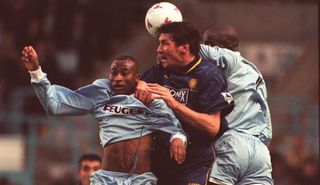
Or, on this occasion, your last one. Like an old boxer who wanted to know whether he could still do it and feel that adrenaline buzz one more time, I asked The Sunday Times if I could cover a match for them almost 20 years since I had acted for them in that capacity. Would I be fast enough? Would I still have the discipline? What would happen if I couldn’t do it? What if I just wasn’t up to it anymore?
Incredibly, they responded in the affirmative. "You’ve got Southampton-Norwich," explained long-standing sports editor Alex Butler. "Is that OK?" Yep, fine. I feel elated and nauseous at the same time.
Exactly the same feelings return, and I know they will not subside until I have filed in two days' time. After I had booked my train to Southampton and researched all I could about the two clubs (on the internet, of course – as any old boxer will tell you, they have new training methods now) I dug out some of my old match reports, my cuttings. The memories, some good, some bad, mostly all terrifying, returned instantly.
Learning the ropes
"I told you not to prepare anything in advance, you f**king idiot," screamed Chris Lightbown down the phone from the office. I’d called him the day after my debut piece to ask him what he thought. He was my "handler" on the paper; all the young writers had one and it was usually him. He had indeed demanded that I didn't prepare anything in advance, but I wanted to cover my back. Babb had had an above-average game (and would join Liverpool the following month for £3.6milllion to become Britain’s most expensive defender). I used the first paragraph to compare him to Franz Beckenbauer.
It was a clunking piece of idiot cut-and-pasting and, if I was to get another chance, it wouldn't be a mistake I’d be making again. A writer from the top drawer possessed of a forensic attention to detail and who had worked for The Sunday Times since 1973, Lightbown took it upon himself to recruit, educate and develop young writers for the paper. There was a house style and if you contradicted it you were out.
"The pages need a mixture of characters to write and describe what they are seeing and from a range of perspectives," he explained, "and then, from the writers themselves, enormous professional discipline and the ability to think through a situation.
"The other thing you need to know is that we don’t run with the pack. That is to say, there are certain unwritten rules with match reporters and national football journalists in general and they are that you stick to the story, you’re all in it together and quotes, player ratings and the names and times of the goalscorers are shared. But that’s not how we operate. You might have missed something because you were filing or looking down at your notepad and then you can ask the person next to you what happened – but apart from that the paper wants your thoughts and your words."
Under his tutelage, match reporting took me all over the north of England and grounds from Maine Road, Goodison Park and Hillsborough (at one of which I witnessed a player receiving a post-match blow job in the club car park – unfortunately it couldn’t make the match report, which I’d already filed) to Moss Lane in Altrincham for an FA Cup tie, during which a heated argument with the former deputy leader of Liverpool city council Derek Hatton almost turned physical with me on the deadline for a rewrite. Unless there’s a fire, you don’t bother a match reporter until he’s filed: there’s a lot of adrenaline going on.
laptop vs word processor
email vs phoning copy-takers
the internet vs Rothmans Yearbook
smartphones vs club-owned rotary-dialed landline
MUFC 20 titles vs MUFC 9 titles
Arsene Wenger's Arsenal vs George Graham's Arsenal
£3.018bn TV rights vs £304m
£50m for Fernando Torres vs £5m for Chris Sutton
None more so than at Leicester vs Southampton in October 1994, in the early stages of a season that was destined to end in relegation for the home side. Having bought the rights to serialise Jonathan Dimbleby’s Prince Charles hagiography, the paper were printing a million more copies and therefore needed to pull forward all the deadlines to afford time on the printing presses. "We’ll need everything 10 minutes before full-time," I was told. "Then you only call in on the final whistle if there’s been a goal." Not a problem.
When I arrived at Filbert Street, in plenty of time, they had even spelled my name right on the press pass. Usually a good omen. Incredibly, and inspired by Franz Carr, Leicester led 4-1 with 10 minutes to go. As walks in the park go, only the addition of dogs and a couple of Victorian women with parasols could have completed the picture on this beautiful late autumn day. Just over 450 words. Filed. Job well done. And then two Southampton goals in the last two minutes and even less time for me to put it all into context for the first edition than it’s taken you to read the last paragraph. I’ve hated Southampton ever since.
Back on the press gang
And so, with a certain inevitability, I’d been given a Southampton game for my comeback. "We need 440 words," the desk explained after I’d sent them photo ID for my Football DataCo card: just turning up and asking for a hand-written press pass from an envelope filed alphabetically in a shoebox doesn’t happen anymore. Not in the Premier League, anyway.
"So you know, we don’t do blow-by-blow accounts, we leave that to others," I was told. Same old Sunday Times, I smiled to myself. I explained that I’d come through the youth team in the mid-'90s. "Do you want me to pick a theme and run with it?" I asked. "Yes, that’s exactly what we want you to do... teams and formations after 10 minutes." It felt like a handshake from an old friend.
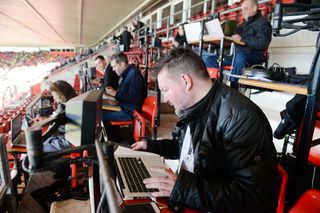
Most of the grounds I used to report from have been demolished but St Mary’s Stadium, the largest stadium in the south of England outside London, stands as a shining symbol of the 21st-century football ground. As a first impression, climbing out of a taxi outside the main entrance, it is undoubtedly impressive. A small army of smart young people, presumably employed in the thriving hospitality areas of the stadium, buzzed about while I was directed to the press box with commendable efficiency. Unlike the shed – and I mean an actual shed with a hole cut in the side – on the roof at Vale Park, there was no need to access the press facilities via a ladder.
In what used to be called a press room there were working lights, plug points, space to write and even a healthy-balanced light lunch and a fridge full of water – not half-time scones and cream at Gay Meadow or beer like you used to get at Sheffield Wednesday. The press box was obviously bespoke, an improvement on the one at Wigan’s old Springfield Park that was so close to one side of the main stand you could only see one goal. Making good use of space, it packed us all in but also provided a monitor in addition to the two large screens at both ends of the ground. It was an impediment to this reporter, who learned his trade with an unobstructed view of the whole pitch.
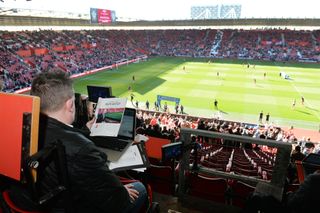
However, it was now a question of how much of that trade I could remember. The welcome nervous tension was certainly there, the plug point was functioning and my phone was charged. England manager Roy Hodgson had the good grace to turn up for my comeback, as indeed did Southampton, although perhaps not Norwich. The Saints were 1-0 ahead after five minutes and dominated the half. As I wrote in my piece, "[The Norwich] defence was uneasy, the midfield congested and the attack impotent"... and the fans restless. This then was my theme – a manager under pressure.
Norwich were losing 2-0 when Chris Hughton panicked and made a triple substitution that prompted his own team's fans to chorus "You don’t know what you’re doing" – the death knell of any manager. The home side were cruising after 72 minutes, normally the point a reporter would be wrapping things up and thinking about that top and tail, but three goals in the last five minutes took the final score to 4-2 and demanded some drastic redrafting: fans love late goals, the press box hates them. It was now we’d see if anything remained of my early education. Luckily, there was no need to bother the copy-takers by phone, mobile or otherwise.
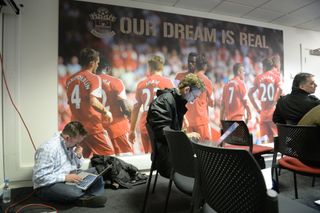
The piece went via e-mail, 440 words as required and not on the final whistle. The addition of almost immediate post-match managers’ press conferences was certainly an interesting development (I remember Joe Royle hosting one in a bar beneath a main stand somewhere ) and bought time but added pressure: had Hughton chosen the occasion to resign, there would have been the need for some hasty revision and the need to find an exclusive angle, to not run with the pack. The journey from press room to interview room in the middle of re-organising a piece was new to me – in the '90s you filed before the manager came in, if he did at all, and then began your rewrite only if he said anything worth reporting.
The decision of the Southampton staff to usher out journalists who were still writing seemed odd. What if I needed another rewrite? It turned out I did – something I learned when I checked my mobile phone and picked up a voice message saying: "It’s now a 660 [-word] page lead." I was in a taxi on the way back to the station. The terror returned. I still had time, but I had to find some wi-fi fast.
After a very large tip, a barman provided a password and said I could sit in the corner undisturbed. I opened up my laptop: nothing. Where’s a pen, a ring-bound notepad and a copy-taker when you need them? And then the wi-fi kicked in, and I filed. It felt amazing. A few cuts and bruises, but still standing.
Southampton photography by Robin Jones, The Digital South
